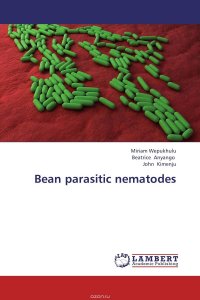Plant parasitic nematodes cause an estimated US$100 billion in damage to Agricultural crops worldwide (Oka et al., 2000). Control with nematicides has serious drawbacks including short term management problems and long term environmental problems. Since the target molecules are dispersed through the soil volume and their precise locations unknown, large volumes of chemicals are applied without encountering target molecules (Akhtar and Malik, 2000). Although many organisms derive their nutrition from nematodes, the most studied natural enemies of nematodes are bacteria and fungi (Karssen and Moens, 2006). Biological control agents like Paecilomyces lilacinus, Pochonia chlamydosporia, Trichoderma spp., Plectosphaerella cucumeria, Agrobacterium radiobacter, B. subtilis, and Pseudomonas spp. have demonstrated potential as control agents for nematodes (Atkins et al., 2002). This book, management of PPN is a textbook that is geared towards biological pest management of plant parasitic nematodes (pests) causing root galls in Bean plants. A combination of Bacillus Subtilis inoculum and suitable soil fertility management practices. Это и многое другое вы найдете в книге Bean parasitic nematodes (Miriam Wepukhulu,Beatrice Anyango and John Kimenju)
Bean parasitic nematodes Miriam Wepukhulu, Beatrice Anyango and John Kimenju
Подробная информация о книге «Bean parasitic nematodes Miriam Wepukhulu, Beatrice Anyango and John Kimenju». Сайт не предоставляет возможности читать онлайн или скачать бесплатно книгу «Bean parasitic nematodes Miriam Wepukhulu, Beatrice Anyango and John Kimenju»
